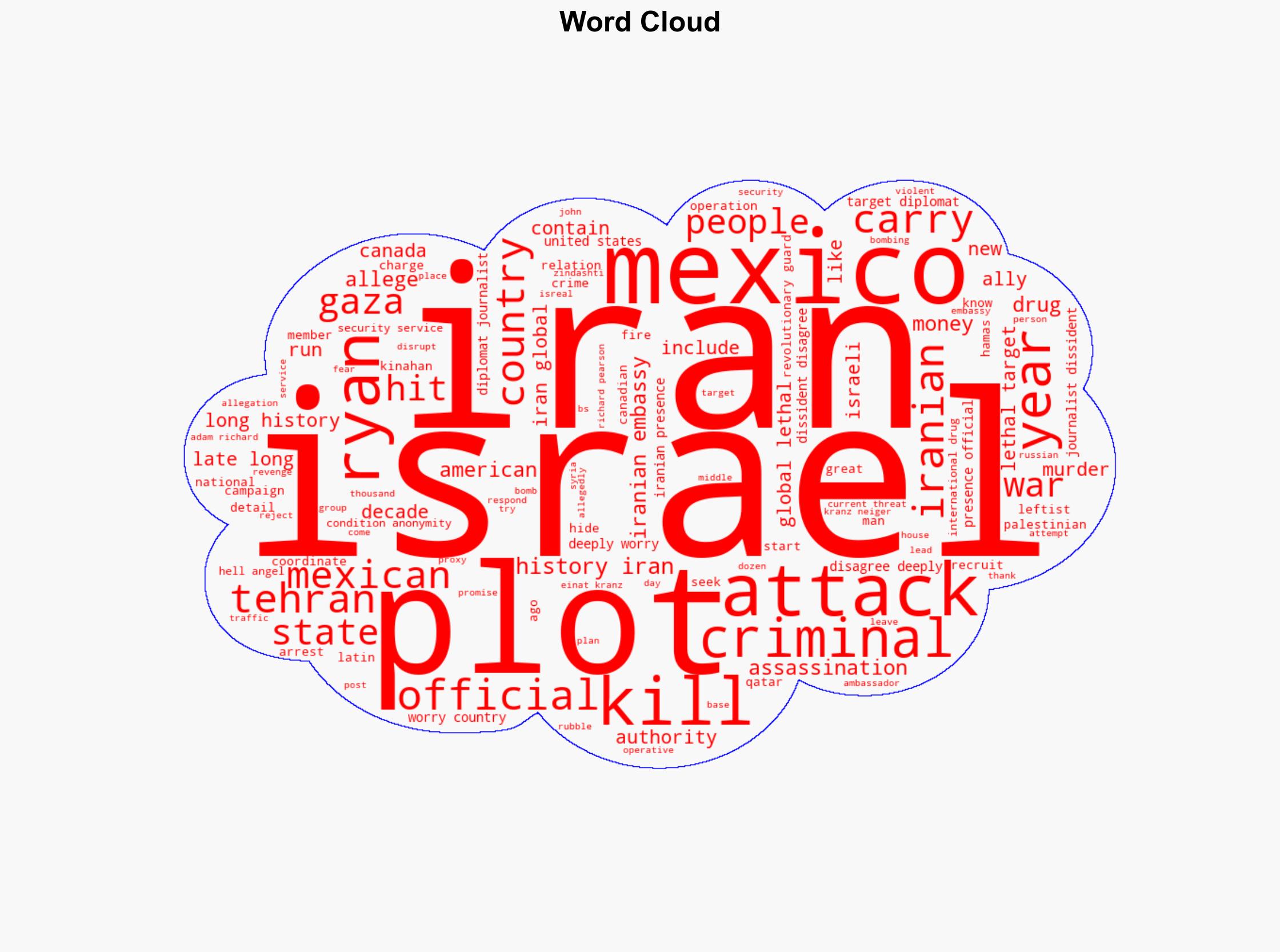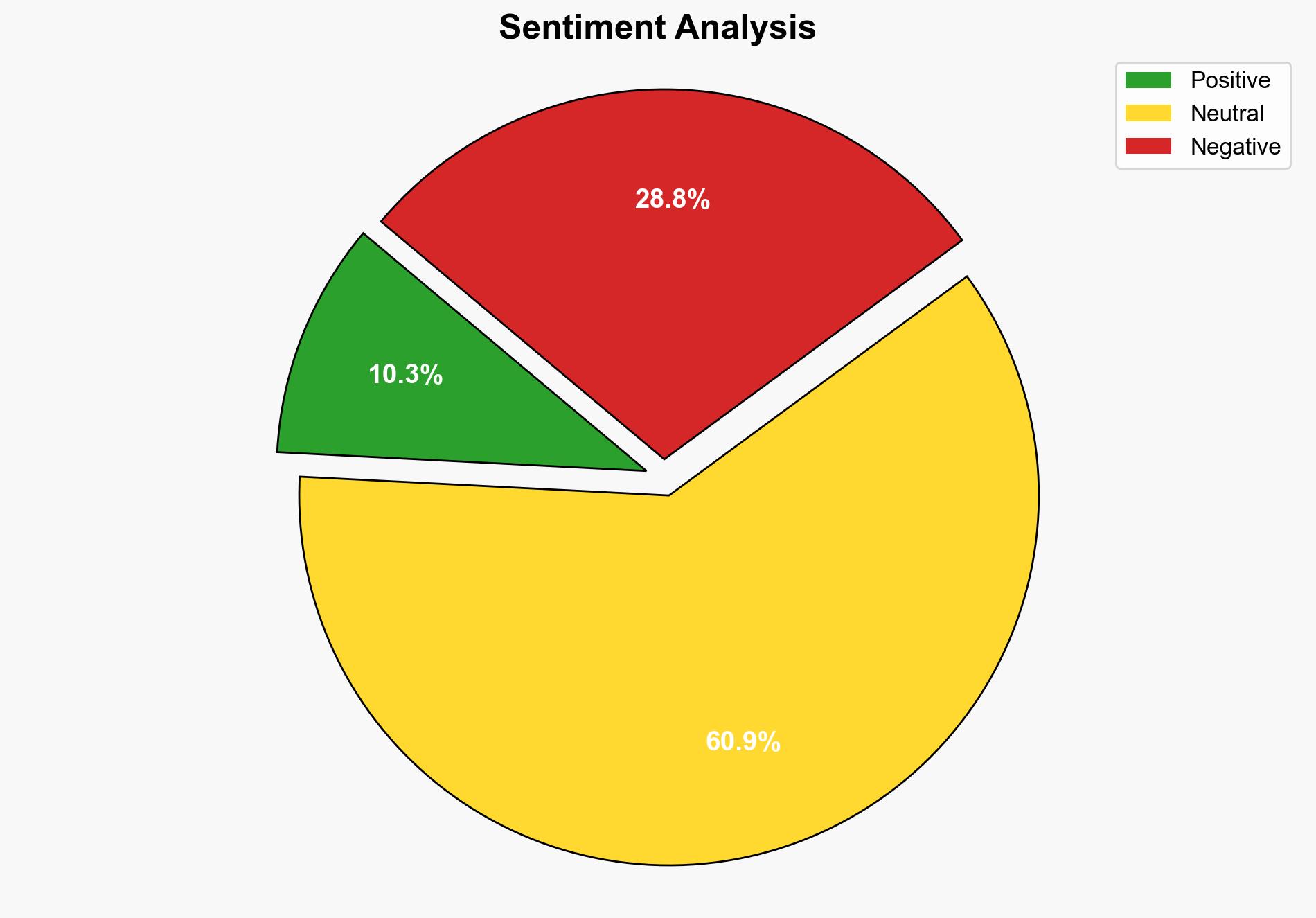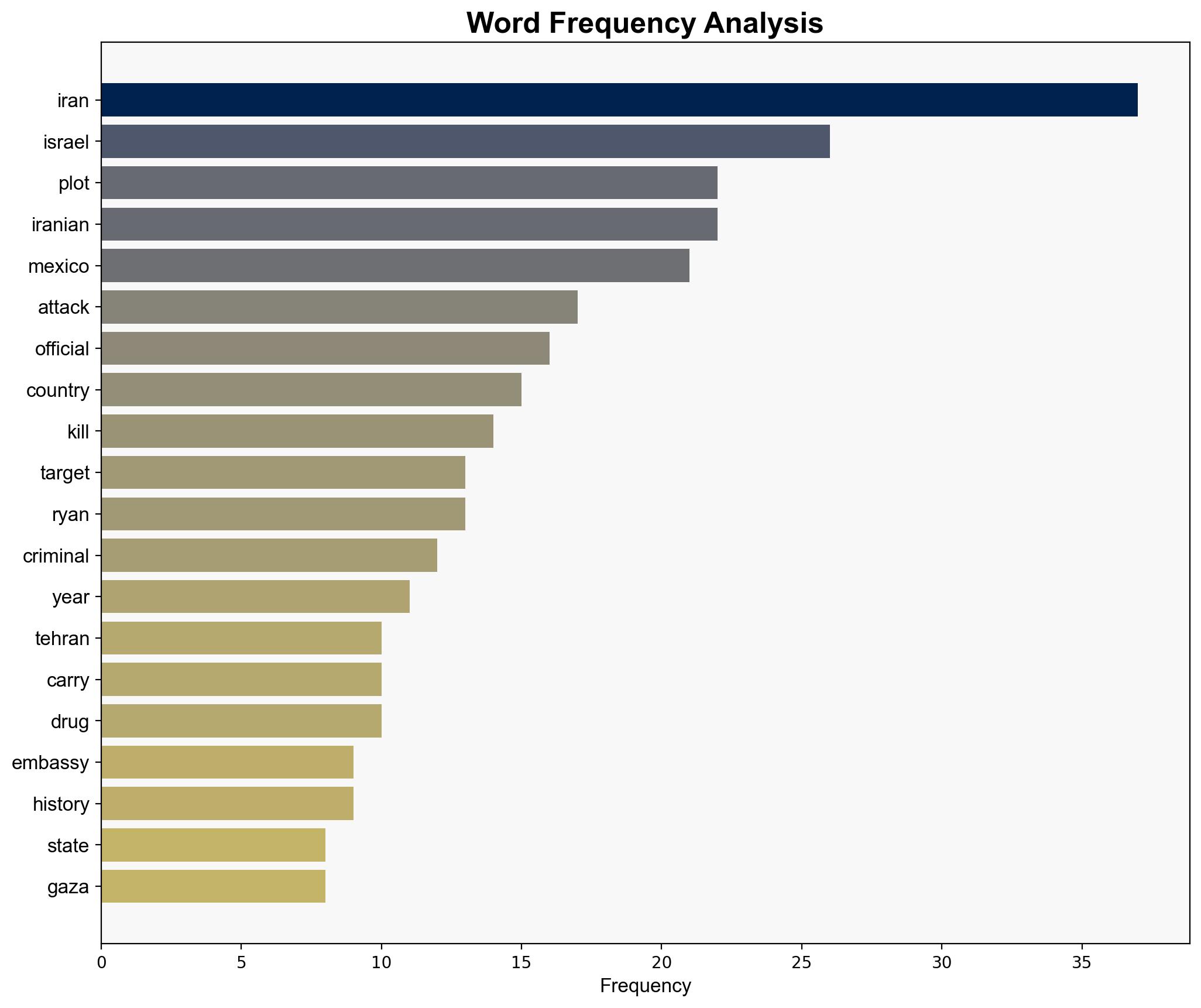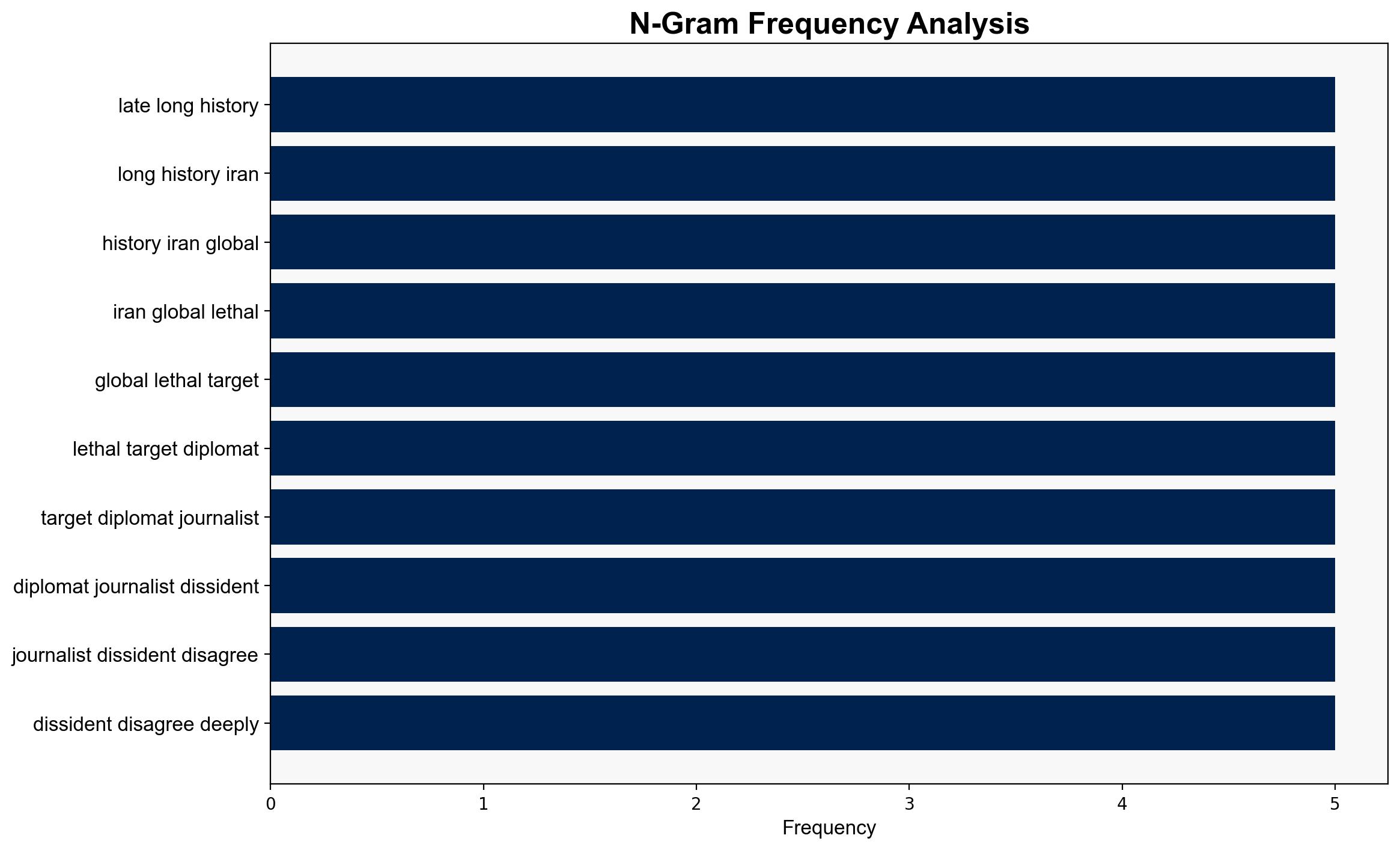Iran Planned to Assassinate Israels Ambassador to Mexico – Borderlandbeat.com
Published on: 2025-11-10
Intelligence Report: Iran Planned to Assassinate Israel’s Ambassador to Mexico – Borderlandbeat.com
1. BLUF (Bottom Line Up Front)
The most supported hypothesis is that Iran, through its Islamic Revolutionary Guard Corps (IRGC), planned to assassinate Israel’s ambassador to Mexico as part of a broader strategy of retaliation against Israeli actions in the Middle East. Confidence in this assessment is moderate due to the lack of detailed evidence and reliance on anonymous sources. Recommended action includes increased intelligence sharing and security cooperation between Israel, Mexico, and allied nations to prevent similar threats.
2. Competing Hypotheses
1. **Hypothesis A**: Iran, via the IRGC, actively planned and attempted to execute an assassination of Israel’s ambassador to Mexico as retaliation for Israeli military actions in Syria and broader geopolitical tensions.
2. **Hypothesis B**: The alleged plot is exaggerated or fabricated, possibly as a strategic narrative by Israel or its allies to justify increased military or diplomatic pressure on Iran.
Using the Analysis of Competing Hypotheses (ACH), Hypothesis A is better supported by historical patterns of Iranian operations against Israeli and Western targets, as well as the reported involvement of Iranian operatives. However, the lack of concrete evidence and the reliance on anonymous sources leave room for Hypothesis B.
3. Key Assumptions and Red Flags
– **Assumptions**: It is assumed that Iran has the capability and intent to conduct such operations in Latin America, leveraging diplomatic channels in Venezuela.
– **Red Flags**: The absence of detailed evidence and specifics about the plot raises questions about the credibility and completeness of the intelligence.
– **Potential Bias**: The narrative may be influenced by geopolitical interests of the reporting entities, potentially skewing the interpretation of events.
4. Implications and Strategic Risks
– **Geopolitical**: Escalation of tensions between Iran and Israel could lead to broader regional instability, impacting global oil markets and international security.
– **Economic**: Potential disruptions in diplomatic relations between Mexico and Iran could affect trade and investment.
– **Cyber and Psychological**: Increased cyber threats and propaganda campaigns could be employed by Iran as alternative retaliatory measures.
5. Recommendations and Outlook
- Enhance intelligence collaboration between Israel, Mexico, and allies to monitor and counter Iranian activities in Latin America.
- Strengthen diplomatic channels to de-escalate tensions and prevent retaliatory cycles.
- Scenario Projections:
- **Best Case**: Diplomatic efforts lead to de-escalation and improved regional security.
- **Worst Case**: Successful execution of similar plots leads to increased geopolitical instability.
- **Most Likely**: Continued low-level tensions with sporadic threats and diplomatic maneuvering.
6. Key Individuals and Entities
– Einat Kranz Neiger
– Nicolas Maduro
7. Thematic Tags
national security threats, cybersecurity, counter-terrorism, regional focus





